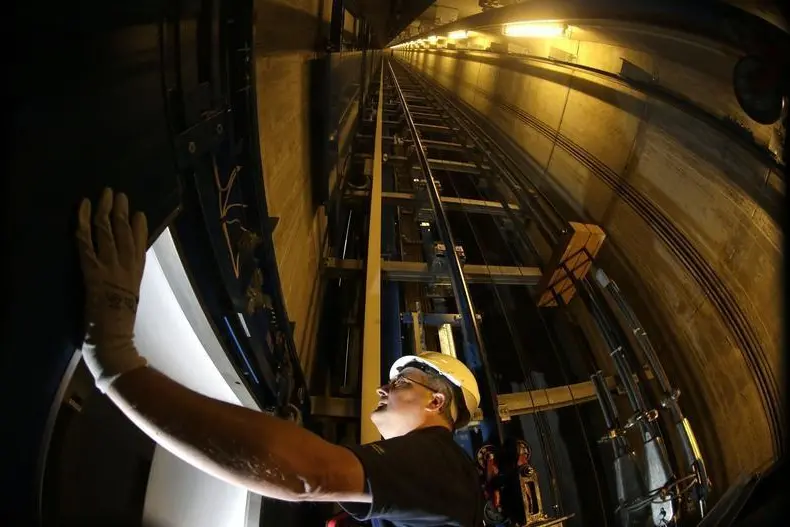PHOTO
By Luke Baker
JERUSALEM, July 18 (Reuters) - A leading suspect in an Israeli investigation into a $2 billion deal to buy German submarines is considering giving evidence in the case to state prosecutors, local media reported on Tuesday.
The 2016 deal has been under public scrutiny since it emerged that Prime Minister Benjamin Netanyahu's personal lawyer also represented the local agent of the German conglomerate ThyssenKrupp Marine Systems
Israel's Channel 2 and the Yedioth Ahronoth newspaper both reported that Michael Ganor, an Israeli businessman who brokered the deal between Israel and ThyssenKrupp, and who police confirmed last week is being held in custody, was in discussions about becoming a state witness.
A spokesman for the Israeli police said he could not confirm the reports and Ganor's lawyer declined via email to respond to questions submitted by Reuters.
Yedioth Ahronoth reported that police had offered several suspects in the case a lighter sentence in exchange for evidence, and said talks with Ganor were "more advanced".
Israel opened the investigation into the deal following media reports that Netanyahu's lawyer, David Shimron, also represented Ganor, raising concerns of a conflict of interest.
Shimron has denied wrongdoing and said he never discussed the deal with Netanyahu, who is also a distant relative. Netanyahu, who is not under investigation in the case, has given his full backing to his lawyer.
"NO CONCRETE INDICATIONS OF CORRUPTION"
ThyssenKrupp said on Tuesday its own six-month investigation into Ganor had found "no concrete indications of corruption" but added that the results were provisional because the company could not carry out investigations in Israel.
"At the current moment in time, ThyssenKrupp is not the subject of German or Israeli investigations," the company said in a statement. "Nevertheless, it is very important to us to get to the bottom of the allegations in Israel."
It said it had offered cooperation to the Israeli and German authorities and was following developments "very closely".
The "submarines affair" involves not only Israel's decision to buy three new subs from ThyssenKrupp, the supplier of Israel's existing five-strong, nuclear-capable fleet, but the purchase of four patrol ships as well.
Opposition politicians have said the contract for the patrol vessels should have been put out to tender rather than being awarded directly to the German shipbuilder. The government has said it followed the correct procedures in awarding the deal.
While the Israeli media has been full of leaks and speculation around the case, the authorities have been far more circumspect as the investigation steadily proceeds.
On July 10, police said three suspects had been remanded in custody and a fourth put under house arrest, while six people in total had been questioned on suspicion of corruption.
The six included public officials and private citizens, police spokeswoman Luba Simri said, adding that they had been questioned under caution on suspicion of bribery, fraud and tax-related offences.
The submarines case is one of several high-level corruption investigations underway. Netanyahu has been questioned as a suspect in two criminal cases, one involving gifts received from businessmen and the other related to discussions he held with a newspaper publisher about more favourable coverage in exchange for curbs on newspaper competition.
Netanyahu has denied wrongdoing in both cases. (Additional reporting by Tom Kaeckenhoff in Duesseldorf; Writing by Luke Baker; Editing by Gareth Jones) ((luke.baker@thomsonreuters.com; +972-2-632-2200; Reuters Messaging: luke.baker.thomsonreuters.com@reuters.net))





















